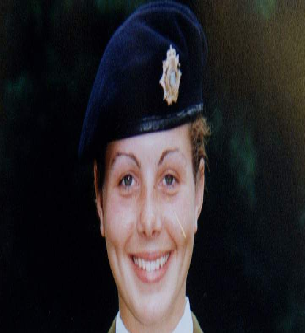The chief of the general staff says the Army is committed to being inclusive after a coroner criticised standards at the camp.

The head of the Army has vowed that lessons will be learned from the inquest into the death of Private Cheryl James at Deepcut barracks in 1995.
General Sir Nick Carter has apologised "unreservedly" to the soldier's parents after a coroner criticised the care offered to recruits at the training camp.
It came as Pte James' family said they were "deeply saddened" by the inquest's findings that the 18-year-old died from a self-inflicted gunshot wound, and was not unlawfully killed.
Writing in The Daily Telegraph, Gen Carter said: "As the head of the Army, but also as a father, I deeply regret Cheryl's tragic death and I want to apologise unreservedly to Mr and Mrs James for the duty of care failings at Deepcut barracks.
"The tragedy of Cheryl's death has taught us some hard lessons and will serve as a constant reminder for me and for all of those who both lead and serve in the Army of the importance of ensuring all of our people are valued and have the opportunity to flourish."
Gen Carter said several changes had already been made, including a zero tolerance stance on bullying and discrimination and improved training standards.
Pte James was one of four soldiers who died at Deepcut in Surrey between 1995 and 2002.
Her father, Des, described the barracks as a "toxic and horrible environment for a young woman" following the verdict at Woking Coroner's Court.
The inquest had heard how sexual promiscuity and heavy drinking had been rife at the training camp, with some instructors seeing young women as a "sexual challenge".
Her family intend to continue their fight for justice after describing Brian Barker QC's findings as an "immense disappointment".
Mr James added that he and his wife Doreen believed their daughter would still be alive today if she had not gone to Deepcut.
In summarising his findings after the three-month inquest, Mr Barker said the "haphazard provision of welfare support was insufficient" at the barracks.
Pte James had been carrying out lone guard duty at the army base when she killed herself, which Mr Barker said had created a "dangerous situation and provided the opportunity for her to take her life".
By: Sky News Photo: Sky News

Reactie plaatsen
Reacties